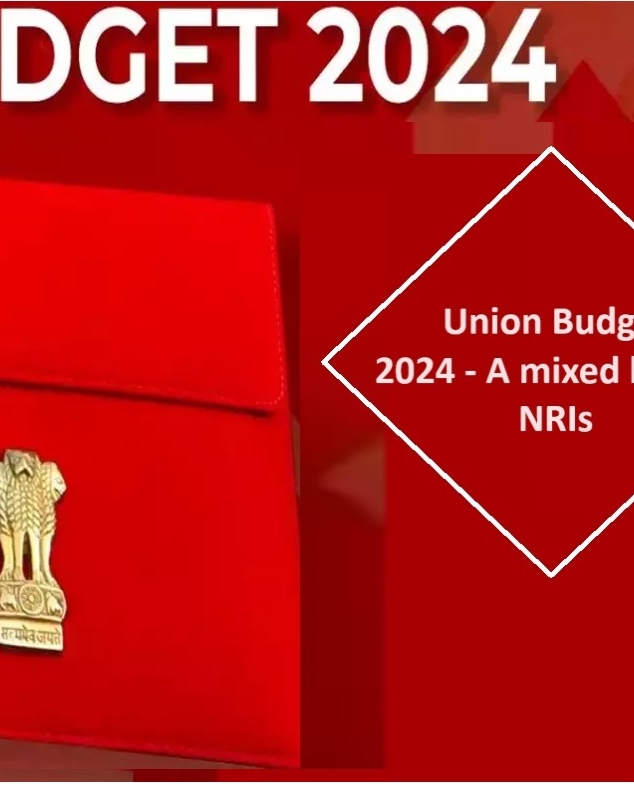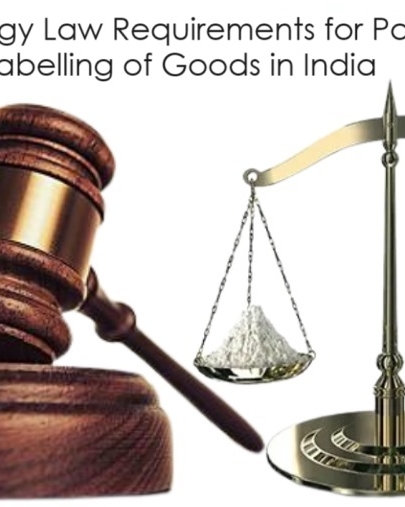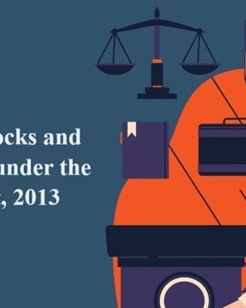Highlights:
Corporate Brief
- Reserve Bank of India Notification No. RBI/2022-23/98 dated 01.08.2022 on “External Commercial Borrowings (ECB) Policy – Liberalisation Measures
- Master Circular issued by the Reserve Bank of India on 02.08.2022 regarding Credit Facilities to Minority Communities
- Central Board of Indirect Taxes (CBIC) Circular No. 178/10/2022-GST dated 03.08.2022 clarifying GST applicability on liquidated damages, compensation and penalty arising out of breach of contract or other provisions of law
- Notification issued by the Reserve Bank of India on 08.08.2022 Authorised Dealer Category-I License eligibility for Small Finance Banks.
- Notification issued by the Ministry of Corporate Affairs, Government of India on 18.08.2022 inserting Rule 25B in the Companies (Incorporation) Rules, 2014
- Reserve Bank of India issued the Foreign Exchange Management (Overseas Investment) Directions, 2022 on 22.08.2022.
- Notification issued by the Ministry of Finance in the Official Gazette notifying the Foreign Exchange Management (Overseas Investment) Rules, 2022 on 22.08.2022.
- Notification issued by the Ministry of Corporate Affairs notifying the Companies (Removal of Names of Companies from the Register of Companies) Second Amendment Rules, 2022 on 24.08.2022.
- Circular issued by SEBI regarding enhanced disclosures by CRAs and norms of rating withdrawal on 25.08.2022.
- Circular issued by SEBI regarding disclosures requirement for Asset Management Companies (AMCs) on 25.08.2022.
- Notification issued by the Ministry of Corporate Affairs notifying the Companies (Acceptance of Deposits) Amendment Rules, 2022 on 29.08.2022.
- Notification issued by the Ministry of Corporate Affairs notifying the Companies (Appointment and Qualification of Directors) Third Amendment Rules, 2022 on 29.08.2022.
- Notification issued by the Ministry of Corporate Affairs notifying the Companies (Registration of Charges) Second Amendment Rules, 2022 on 29.08.2022.
RERA Brief
- Circular issued by Punjab RERA providing for filing of RERA execution applications
- Order issued by Odisha RERA providing for eventualities for extension of time period under Section 7(3) of the Act
- Order issued by Maharashtra RERA introducing guidelines for submission of proforma of the allotment letter and agreement for sale at the time of registration
- Order issued by UPRERA enacting Regulation No. 48 to prescribe the amount of fee payable by real estate agents
- Notification issued by Rajasthan RERA amending Form-G of Rajasthan Real Estate (Regulation and Development) Rules, 2017
Litigation Brief
- Statutory pre-litigation mediation mandatory under Section 12A of the Commercial Courts Act, 2015.
- Case Analysis: Vidarbha Industries Power Limited Vs. Axis Bank Limited [Civil Appeal No. 4633 of 2021]
Corporate Brief
RBI Notification No. RBI/2022-23/98 dated 01.08.2022 on “External Commercial Borrowings (ECB) Policy – Liberalisation Measures
The Reserve Bank of India (RBI) on August 1, 2022 has issued a Notification on “External Commercial Borrowings (ECB) Policy – Liberalisation Measures”. Attention is invited to paragraph 2.2 of FED Master Direction No.5 on External Commercial Borrowings, Trade Credits and Structured Obligations, dated March 26, 2019, in terms of which eligible ECB borrowers are allowed to raise ECB up to USD 750 million or equivalent per financial year under the automatic route, and paragraph 2.1.vi. ibid, wherein the all-in-cost ceiling for ECBs has been specified. As announced in paragraph five of the press release on “Liberalisation of Forex Flows” dated July 06, 2022, it has been decided, in consultation with the Central Government, to:
- increase the automatic route limit from USD 750 million or equivalent to USD 1.5 billion or equivalent.
- increase the all-in-cost ceiling for ECBs, by 100 bps. The enhanced all-in-cost ceiling shall be available only to eligible borrowers of investment grade rating from Indian Credit Rating Agencies (CRAs). Other eligible borrowers may raise ECB within the existing all-in-cost ceiling, as hitherto.
The above relaxations would be available for ECBs to be raised till December 31, 2022.
Master Circular issued by the Reserve Bank of India on 02.08.2022 regarding Credit Facilities to Minority Communities.
The Reserve Bank of India, vide its notification dated 02.08.2022 issued Master Circular regarding Credit Facilities to Minority Communities to ensure that the minority communities secure the benefits flowing from various Government sponsored schemes. The Government of India has also annexed a list of 121 minority concentration districts having at least 25% minority population The Circular states that:
- A target of 40% and 75% of Adjusted Net Bank Credit (ANBC) or Credit Equivalent amount of Off-Balance Sheet Exposure (OBE) has been mandated for lending to the priority sector by domestic scheduled banks commercial banks and foreign banks and small finance banks, respectively.
- Each bank should set up a special cell having a Nodal Officer in order to ensure smooth flow of credit to minority communities.
- The Lead Banks in 121 identified districts may involve the State Minority Commissions/ Finance Corporations.
- Banks may route loans under the Differential rate of Interest (DRI) scheme through State Minority Commissions/ Finance Corporations.
- Data on credit extended to members of minority communities should be furnished to Reserve Bank of India and to the Government of India, Ministry of Finance and Ministry of Minority Affairs, on half yearly basis as at the end of March and September every year within 1 (one) month from the end of each half year.
- Banks should create publicity through various means about the anti-poverty programmes of the Government where there is large concentration of minority communities and particularly in the districts.
Central Board of Indirect Taxes (CBIC) Circular No. 178/10/2022-GST dated 03.08.2022 clarifying GST applicability on liquidated damages, compensation and penalty arising out of breach of contract or other provisions of law
CBIC has issued a circular clarifying the GST applicability on liquidated damages, compensation and penalty arising out of breach of contract or other provisions of law. The circular has clarified that “Agreeing to the obligation to refrain from an act or to tolerate an act or a situation, or to do an act” has been specifically declared to be a supply of service in para 5 (e) of Schedule II of CGST Act if the same constitutes a “supply” within the meaning of the Act.”
The circular stated that “forfeiture of earnest money by a seller in case of breach of ‘an agreement to sell’ an immovable property by the buyer or such forfeiture by Government or local authority in the event of a successful bidder failing to act after winning the bid for allotment of natural resources, is a mere flow of money, as the buyer or the successful bidder does not get anything in return for such forfeiture of earnest money. Forfeiture of earnest money is stipulated in such cases not as a consideration for tolerating the breach of contract but as a compensation for the losses suffered and as a penalty for discouraging the non-serious buyers or bidders. Such payments being merely flow of money are not a consideration for any supply and are not taxable.”
Notification issued by the Reserve Bank of India on 08.08.2022 regarding Authorised Dealer Category-I License eligibility for Small Finance Banks.
The Reserve Bank of India, vide its notification dated 08.08.2022 stated that all the scheduled Small Finance Banks, after completion of at least two years of operations as Authorised Dealer Category-II, will be eligible for Authorised Dealer Category-I license, subject to eligibility norms laid down in Annex-I of the notification. The eligible Small Finance Banks can approach Foreign Exchange Department, Central Office, Reserve Bank of India with their application along with the supporting documents with regard to their eligibility and the list of requisite documents is laid down in Annex-II of the notification.
Notification issued by the Ministry of Corporate Affairs, Government of India on 18.08.2022 amending the Companies (Incorporation) Rules, 2014
The Ministry of Corporate Affairs, Government of India, vide its notification dated 18.08.2022 inserted Rule 25B in the Companies (Incorporation) Rules, 2014. The rule is regarding the physical verification of Registered Office of the company and provides format for the report on physical verification of the Registered Office of the company. The rule states that:
- The Registrar, on the basis of the documents made available on MCA 21, shall visit the address of the registered office of the company and may cause the physical verification of the said registered office in presence of two independent witnesses of the locality and may seek assistance of local police for such verification.
- The Registrar shall carry the documents as filed on MCA 21 for the purpose of physical verification and to check the authenticity of the same by cross verification with the copies of the supporting documents collected during the said physical verification.
- The Registrar shall take photograph of the registered office of the company while causing physical verification.
Reserve Bank of India issued the Foreign Exchange Management (Overseas Investment) Directions, 2022 on 22.08.2022.
The Reserve Bank of India, vide its notification dated 22.08.2022, issued the Foreign Exchange Management (Overseas Investment) Directions, 2022. The directions simplify the existing framework for overseas investment by persons resident in India to cover wider economic activity and significantly reduces the need for seeking specific approvals, which will reduce the compliance burden and associated compliance costs. The directions enhance clarity with respect of various definitions, has introduced the concept of “strategic sector”, introduces “Late Submission Fees” for reporting delays. Detailed operational instructions are mentioned in Annex-I and Annex-II attached with the notification.
The regulations provide detailed provisions for financial commitment by modes of equity capital, debt, guarantee, pledge or charge. The regulations also provide acquisition or transfer by way of deferred payment, mode of payment, what are the obligations of person resident in India etc.
Notification issued by the Ministry of Finance in the Official Gazette issued the Foreign Exchange Management (Overseas Investment) Rules, 2022 on 22.08.2022.
The Ministry of Finance, vide its notification dated 22.08.2022 issued the Foreign Exchange Management (Overseas Investment) Rules, 2022. The rules aim to simplify the existing framework for overseas investment by a person resident in India to cover wider economic activity and significantly reduce the need for seeking specific approvals. The rules will will subsume extant regulations pertaining to Overseas Investments and Acquisition and Transfer of Immovable Property outside India Regulations, 2015.
Notification issued by the Ministry of Corporate Affairs in the Official Gazette notifying the Companies (Removal of Names of Companies from the Register of Companies) Second Amendment Rules, 2022 on 24.08.2022.
The Ministry of Corporate Affairs, vide its notification dated 24.08.2022 issued the Companies (Removal of Names of Companies from the Register of Companies) Second Amendment Rules, 2022 to amend the Form No. STK-1 and Form No. STK-5A under the Companies (Removal of Names of Companies from the Register of Companies) Rules, 2016.
Circular issued by SEBI regarding enhanced disclosures by CRAs and norms of rating withdrawal on 25.08.2022.
SEBI, vide its circular dated 25.08.2022 has laid down enhanced disclosures and norms of rating withdrawal. The new framework will be applicable to credit ratings of securities that are already listed or proposed to be listed on a stock exchange. Credit Rating Agencies (CRAs) will have to compare two consecutive rating actions. Further, a CRA will have to disclose a sharp rating action if the rating change between two consecutive rating actions is more than or equal to three notches downward. CRAs also have to frame detailed guidelines on what constitutes non-cooperation by issuers and need to have a detailed policy regarding methodology in respect of assessing the risk of non-availability of information from the issuers.
Circular issued by SEBI regarding disclosures requirement for Asset Management Companies (AMCs) on 25.08.2022.
SEBI, vide its circular dated 25.08.2022 laid down disclosure requirement for Asset Management Companies (AMCs). Vide the circular, SEBI has amended the definition of “associate” as per clause (c) of sub-regulation (1) of regulation 2 of SEBI (Mutual Funds) Regulations, 1996. The circular also states that AMCs shall ensure scheme wise disclosure of investments, as on the last day of each quarter, in securities of such entities that are excluded from the definition of associate. Further, the circular states that disclosure of Investment shall include International Securities Identification Number (ISIN) wise value of investment and value as percentage of Assets under management (AUM) of scheme.
Notification issued by the Ministry of Corporate Affairs notifying the Companies (Acceptance of Deposits) Amendment Rules, 2022 on 29.08.2022.
The Ministry of Corporate Affairs, vide its notification dated 29.08.2022 notified the Companies (Acceptance of Deposits) Amendment Rules, 2022 to amend the Companies (Acceptance of Deposits) Rules, 2014. In rule 16, after the words “auditors of the company” of the Companies (Acceptance of Deposits) Rules, 2014, the words, letters and figure “and declaration to that effect shall be submitted by the auditor in Form DPT-3” has been inserted and certain changes have been made in Form DPT-3 and Form DPT-4 by the Companies (Acceptance of Deposits) Amendment Rules, 2022.
Notification issued by the Ministry of Corporate Affairs notifying the Companies (Appointment and Qualification of Directors) Third Amendment Rules, 2022 on 29.08.2022.
The Ministry of Corporate Affairs, vide its notification dated 29.08.2022 notified the Companies (Appointment and Qualification of Directors) Third Amendment Rules, 2022 to amend the Companies (Appointment and Qualification of Directors) Rules, 2014 by introducing new forms in the Annexure, for e-form DIR-3-KYC and web-form DIR-3-KYC-WEB..
Notification issued by the Ministry of Corporate Affairs notifying the Companies (Registration of Charges) Second Amendment Rules, 2022 on 29.08.2022.
The Ministry of Corporate Affairs, vide its notification dated 29.08.2022 issued the Companies (Registration of Charges) Second Amendment Rules, 2022 to amend the Companies (Registration of Charges) Rules, 2014. Rule 13 was inserted after rule 12 of the Companies (Registration of Charges) Rules, 2014 which is regarding signing of charge e-forms by insolvency resolution professional or resolution professional or liquidator for companies under resolution or liquidation.
Real Estate Brief
Circular issued by Punjab RERA providing for filing of RERA execution applications
Vide Circular No. RERA/Legal/2022/7816 dated 04.08.2022, Punjab Real Estate Regulatory Authority (“Authority”) provided the procedure for filing of execution applications arising from the complaints filed under Section 31 of the Real Estate (Regulation and Development) Act, 2016 (“Act”). The said applications shall be heard by the Authority or respective benches of Authority or Adjudicating Officer, as the case maybe. The said execution application may be filed personally or through an authorized representative in the prescribed format. In case the application is found to not be in the prescribed format, a communication shall be given to the applicant to rectify deficiencies within 15 (fifteen) days. Upon due consideration of the execution application and finding a prima facie case, the Authority shall issue notice to the respondent/ judgment debtor.
Order issued by Odisha RERA providing for eventualities for extension of time period under Section 7(3) of the Act
Vide Order no. 3332/ORERA dated 05.08.2022, Odisha Real Estate Regulatory Authority (“Authority”) provided for eventualities whereby extension of a project beyond one year under Section 7(3) of the Act may be considered. The Odisha RERA Authority reiterated parts of the judgment of Hon’ble Bombay High Court in “Neelkamal Realtors Suburban Pvt Ltd v. Union of India” wherein the Hon’ble High Court opined that a genuine promoter may not always be able to complete a project within stipulated time owing to justifiable reasons and therefore, the provisions of Section 6 and Section 7 of the Act should be read harmoniously in interest of the larger public in order to regulate the real estate sector. Furthermore, in case of failure of completion of project within stipulated time period, the only outcome shall not be to directly oust the promoter from the project. The promoter may be provided with an opportunity to convince the Authority by providing compelling reasons leading to delay in completion of project and the same shall be accordingly examined on a case to case basis. In pursuance of the observations of the Hon’ble High Court, it was provided that in case a promoter of a registered project fails to complete a project within an extended period of at most one year as allowed under Section 6 of the Act, then, such promoter may apply afresh in Form-II for further extension of registration on payment of requisite fees and such application shall be considered by the Authority under Section 7(3) of the Act subject to restrictions and conditions imposed by Hon’ble High Court in abovementioned judgment.
Order issued by Maharashtra RERA introducing guidelines for submission of proforma of the allotment letter and agreement for sale at the time of registration
Vide Order No. 35/2022 dated 12.08.2022, Maharashtra Real Estate Regulatory Authority (“Authority”) introduced guidelines for submission of proforma of the allotment letter and agreement for sale at the time of registration of real estate project in accordance with Clause (g) of Sub-section 2 of Section 4 of the Act. The said order stipulates that the proforma of the allotment letter proposed to be signed by the promoters with the allottees should be in conformity with the model allotment letter as approved by the Authority and such allotment letter should be annexed with the application for registration of real estate project. The promoters are also required to upload the proforma of the agreement to sale proposed to be executed. If the promoters choose to execute an allotment letter or agreement to sale which is not in accordance with the approved proforma or model agreement, respectively, then, the deviations/ modifications in such allotment letter or agreement, as the case may be, shall be highlighted in a different colour before being uploaded along with a deviation sheet mentioning such deviations/ modifications in order to enable the allottees to make an informed decision. Non-compliance of the mentioned directions shall lead to rejection of registration application subject to the mandate of the proviso appended to Section 5 of the Act.
Order issued by UPRERA enacting Regulation No. 48 to prescribe the amount of fee payable by real estate agents
Vide Notification dated 23.08.2022, Rajasthan Real Estate Regulation Authority (“Authority”) made amendments in Form-G (Agreement for Sale) of Rajasthan Real Estate (Regulation and Development) Rules, 2017 by virtue of which Term 18A was inserted titled “The Rajasthan Apartment Ownership Act, 2015”. Term 18A reads to effect assurance by the promoter to the allottee(s) regarding completion of project as per Rajasthan Apartment Ownership Act, 2015. By virtue of Term 18A, the Promoter further assures the allottee(s) that all provisions of other laws, rules and regulations prevailing in Rajasthan have been duly complied with regard to the project.
Notification issued by Rajasthan RERA amending Form-G of Rajasthan Real Estate (Regulation and Development) Rules, 2017
Vide Order No. 9845/U.P.RERA/Gen.Regulation/2022 dated 26.08.2022, the Uttar Pradesh Real Estate Regulatory Authority (“Authority”) provided for insertion of Regulation No. 48 to prescribe the amount of fee payable by real estate agents for amendment to registration certificate granted to real estate agent in Form-H to effectuate the amendment in the period of validity of the registration certificate of the real estate agent. The said regulation provided that such fee shall amount to Rs. 1,000/- (Rupees One Thousand only) in case of real estate agent being and individual and Rs. 5,000/- (Rupees Five Thousand only) in case of real estate agent being anyone other than individual. Payment of such fees is to be made through online modes as provided on the website of the Authority.
Litigation Estate Brief
Statutory pre-litigation mediation mandatory under Section 12A of the Commercial Courts Act, 2015.
IN THE MATTER OF: Patil Automation Private Limited and Ors. Vs. Rakheja Engineers Private Limited, MANU/SC/1004/2022
Decided by Hon’ble Supreme Court on 17.08.2022
Facts:
- The Respondent filed a commercial suit against the Appellants for recovery of money along with interest on a certain sum under Order XXXVII of the Code of Civil Procedure (“CPC”) before the Additional District Judge, District Court, Faridabad.
- In response, the Appellants filed an application under Order VII Rules 10 and 11 read with Sections 9 and 20 of the CPC seeking rejection of plaint of the Respondent on the basis that Section 12A of the Commercial Courts Act, 2015 (“the said Act”) mandating pre-litigation mediation has not been complied with.
- The Ld. District Court however, rejected the application of the Appellant holding that giving strict interpretation to Section 12A so as to reject a suit would have a catastrophe effect. The Ld. Trial Court further stated that Section 12A was incorporated only to ensure the alternative means of dissolution are adopted so that the genuine cases come before the court which will result in de-congesting the regular courts. While observing that the procedure and law are for advancement of justice and not to thwart on technical grounds, the Ld. Trial Court kept the civil suit in abeyance and directed both the parties to appear before the Secretary, District Legal Services Authority, Faridabad for the purpose of mediation as per the provisions of Section 12A.
- Aggrieved by the rejection of its Application, Appellant filed a Civil Revision Petition before the High Court of Punjab and Haryana. The Hon’ble High Court confirming with the view of Ld. Trial Court observed that intention of legislature behind referring the dispute to mediation is to explore settlement, which cannot be interpreted to deliver ‘perverse justice’.
- Appeals with similar facts and issues pending before the Hon’ble Supreme Court were also dealt with in this judgment.
Issues:
The issue which arose in the instant case is whether the statutory prelitigation mediation provided under Section 12A of the said Act as amended by the Amendment Act of 2018 is mandatory so as to reject a plaint filed in a commercial suit for non-compliance of the said pre-condition.
Court’s Observations and Findings:
- The Hon’ble Supreme Court referred to catena of judgments dealing with interpretation of different statutory enactments to consider whether such enactments were mandatory or directory and to perceive a distinction between the words ‘must’ and ‘shall’ used in any Act.
- Relying on Sharif-ud-Din v. Abdul Gani Lone[1] wherein it has been held that, if the object of the law is defeated by non-compliance with a provision, then, it would be regarded as mandatory, it was observed that Section 12A cannot be described as a mere procedural law, which is a mandatory provision and any other interpretation would result in frustration of the object of the said Act.
- The Hon’ble Court also observed that the judgment of Single Judge in Ganga Taro Vazirani v. Deepak Raheja[2], holding Section 12A to be a procedural provision and which has been relied upon in the impugned judgments, has been overruled by the Division Bench in appeal which stated that Section 12A is a mandatory and considering the object and purpose of Section 12A, being rooted in public interest, there is no question of it being waived.
- The Hon’ble Court went through the language of Section 12A of the said Act, rules for initiation of mediation process and the statement of objects and reasons of the Amending Act of 2018 which brought Section 12A into existence to observe that a commercial suit cannot be filed except after the remedy of pre-litigation mediation is attempted and exhausted.
- Placing reliance on views expressed in Ram Bakshi and Ors. v. Sonia Khosla (Dead) by Legal Representatives,[3] in favour of mediation, the Apex Court opined that Section 12A provides for a cooling period wherein all the parties are to be referred for mediation at the hands of skilled mediators which is a need of the hour in this period of docket explosion. The Hon’ble Court also stated that there is no absolute right to file a civil suit and the same can be barred until certain conditions are fulfilled.
- In conclusion, the Hon’ble Court declared that Section 12A of the Act is mandatory and held that any suit instituted in contravention of Section 12A must be rejected, which can be done even suo moto by the court.
Case Analysis: Vidarbha Industries Power Limited Vs. Axis Bank Limited [Civil Appeal No. 4633 of 2021]
The captioned appeal was filed before the Hon’ble Supreme Court against a final judgment and Order dated 02.03.2021 passed by the Hon’ble National Company Law Appellate Tribunal, New Delhi (“NCLAT”) in Company Appeal No. 117 of 2021. The main issue in the said matter was the following:
- Whether the NCLT has the power to reject an application filed under Section 7 of the Insolvency and Bankruptcy Code, 2016 (“IBC”) even if there is a default on the part of the Corporate Debtor?
Facts-
- Vidarbha Industries Power Limited (“Corporate Debtor”) is a power generation company which defaulted on its payment obligations under credit facilities availed from a consortium of six banks which is led by Axis Bank Limited (“Respondent”). In pursuance to default in repayment to the tune of INR 533 crores, the Respondent filed an application under section 7 of the Code, i.e., C.P. (IB) No. 264 of 2022, for the initiation of the Corporate Insolvency Resolution Process (“CIRP”) of the Corporate Debtor on account of the said default.
- The Corporate Debtor filed an interlocutory application seeking stay of further proceedings in light of various proceedings pending before Maharashtra Electricity Regulatory Commission (“MERC”), Appellate Tribunal for Electricity (“APTEL”) and the Supreme Court as a sum of Rs. 1,730 Crores was due to the Appellant on account of revision of tariff caused by rise in price of coal for Financial Years 2014-2016 basis the Order dated 03.11.2016 of APTEL which if recovered would have enabled the Appellant to clear all of its dues. It is pertinent to mention that the debt or occurrence of default was not disputed by the Corporate Debtor.
- Relying on the threshold requirements for initiation of the CIRP proceedings provided by statute, i.e., existence of debt and evidence of default (commonly known as twin test), upheld by the Supreme Court in Swiss Ribbon and Innoventive Industries, the NCLT dismissed the interlocutory application filed by the Corporate Debtor holding that no external reason triggering default by a corporate debtor would be relevant if the threshold of twin test is satisfied.
- The application filed under Section 7 of the Code by the Respondent was allowed and the CIRP proceedings of the Corporate Debtor was initiated. The order allowing initiating the CIRP proceedings of the Corporate Debtor was challenged in the NCLAT, New Delhi; but the Hon’ble NCLAT dismissed the appeal.
- Thereafter, the Appellant challenged the judgment of NCLAT in the captioned appeal before the Hon’ble Supreme Court under Section 62 of Code.
Observations of the Hon’ble Supreme Court-
- Hon’ble Supreme Court held that the Code was instituted with an aim to facilitate the assessment of viability of an enterprise at a very early stage and to ensure a time bound insolvency resolution process in order to preserve economic value of the enterprise.
- The court in variance to the order of the NCLT held that the precedence set up in Swiss Ribbons Private Limited and Anr. vs Union of India and Ors.[4] providing for timely resolution of Corporate Debtor must always be relied upon but the viability and overall financial health of the Corporate Debtor are not to be considered as extraneous as provided in the said judgment.
- The apex court criticized NCLT for overlooking the award of APTEL in favor of the Appellant and further held that the said award amounted to Rs 1,730 Crore, which was far exceeding the claim of financial creditor. The court further emphasized that existence of financial debt and default in payment thereof only provides a financial creditor with a right to apply for initiation of the CIRP proceedings and that the NCLT is required to apply its mind to relevant factors including the feasibility of initiation of the CIRP proceedings of a corporate debtor.
- The court elaborated on the intention of the legislature while choosing to use “may” in Section – 7(5)(a). It was emphasized upon that “may” is used to confer discretionary authority in statutes whereas “shall” is used postulating mandatory requirements.
- Furthermore, weighing upon the literal rule of interpretation, it was opined that the said provision must be considered to confer jurisdiction on the NCLT with respect to initiation of CIRP proceedings. Furthermore, as there existed no ambiguity in interpretation of the concerned provision, the court held that it need not depart from the literal rule of interpretation to any other rule of interpretation of statute.
- The court also highlighted the use of the term “shall” in Section 9(5) of the Code conferring a mandatory directive upon the NCLT. In furtherance to the same, it was opined that the legislature must have used different words in similar provisions intending to convey a different meaning to each of the provisions.
- Emphasizing upon the title of the Code, the court held that the Code has been formulated to deal with bankruptcy and insolvency and certainly not to penalize solvent companies and therefore, temporary default in repayment of debt cannot be a justified reason to initiate insolvency proceedings mandatorily. Furthermore, the question of time bound initiation and completion of CIRP proceedings could have only arisen if companies were bankrupt or insolvent and not otherwise.
- The Hon’ble Supreme Court further held that the powers conferred under Section 7(5)(a) were discretionary; however, the said discretion ought not be exercised arbitrarily or capriciously. Furthermore, an application under the said provision should be considered citing appropriate reasons by the NCLT.
Conclusion-
For the reasons discussed above, the captioned appeal was allowed. The impugned Order dated 29.01.2021 passed by the NCLT and the impugned Order dated 2.03.2021 passed by the NCLAT dismissing the appeal was set aside. The NCLT was directed to re-consider the application of the Appellant for stay of further proceedings on merits in accordance with law.
****
Disclaimer:
For private circulation to the addressee only and not for re-circulation. Any form of reproduction, dissemination, copying, disclosure, modification, distribution and/ or publication of this Newsletter is strictly prohibited. This Newsletter is not intended to be an advertisement or solicitation. The contents of this Newsletter are solely meant to inform and is not a substitute for legal advice. Legal advice should be obtained based on the specific circumstances of each case, before relying on the contents of this Newsletter or prior to taking any decision based on the information contained in this Newsletter. ZEUS Law disclaims all responsibility and accepts no liability for the consequences of any person acting, or refraining from acting, on such information. If you have received this Newsletter in error, please notify us immediately by telephone.
Copyright © 2022 ZEUS Law. All rights reserved. Replication or redistribution of content, including by caching, framing or similar means, is expressly prohibited without the prior written consent of ZEUS Law.
[1] MANU/SC/0352/1979
[2] MANU/MH/0403/2021
[3] MANU/SC/0430/2014
[4] (2019) 4 SCC 17






















